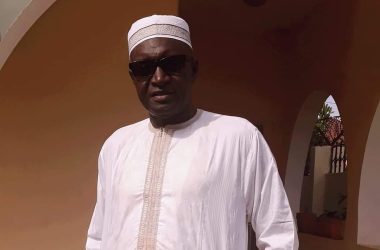
(JollofNews) – The new government must be commended for its efforts in reconstructing the Gambia foreign relations. The jettison of the policy that terminated the Gambia Commonwealth membership and the reinstatement of the Gambia as a secular state exemplifies real commitments to rebuilding the Gambia external image.
A strategic approach which protects the Gambia interests must be the ultimate goal of the government. Although reciprocity and sovereign equality is the basis on which states interrelate to each other, hegemonic powers tend to use their superior economic capabilities as bargaining leverages to attain better deals at the expense of developing economies.
In this sense, developing economies are coerced to subdue their sovereign equality status in order to advance the politically loaded agendas of the dominant states. This starkly reminds us that international politics is a deadly complex business which requires a clear-cut thinking strategy to mitigate the brute forces of material power.
While the constructivist scholars contend that ideational factors such as intersubjective beliefs and social factors play far more significant roles in shaping states to state relations; this may well be the case if states have equal economic capabilities. In the absence of such idealism, international relations can only rest on rationalist and realist foundations that allow states to extend their sphere of influence through material power. For the Gambia, given the size of its economy, material variables are more likely to influence its foreign policy than the ideational factors because of its limited capacity of its economy.
Therefore, in order to mitigate such brute forces of the material power, the government must continue to conduct our foreign relations on the policy of neutrality. This will allow the Gambia to deal freely with all hegemonic powers without espousing any ideological stance. That is to say, realpolitik is the best way to form fruitful relations with the dominant powers. That way, we can preserve our values and international norms without undermining our strategic partnerships with other hegemonic powers. Take for example Sweden has maintained a neutral position in international relations, while it guards its economic interests. Adopting a neutral position is in no way diminishes government responsibility to regulate the operation of foreign corporations in the Gambia. An effective regulatory frame is necessary to protect the environment as well as citizens’ rights. Our relations with other states must be symbiotic in respect of our sovereignty so that we can retain our authority over our resources.
Starting with Senegambia relationship, Senegal and Gambia enjoys an inseparable relationship that is historical and cultural interconnected. Obviously, the political impasse was an important turning point in our relationship as Senegalese stood with coalition shoulder to shoulder to dislodge the previous government. It is also important for Senegal to have a strategic partner who will support the efforts to bring an end to the hostilities in Casamance region. Although the president first visits to Senegal seemed to have sparked controversies in some quarters, the visit was necessary to nurture our longstanding relationship. At times public exhortation may risk undermining our very strategic relationships. We must avoid a cul-de-sac that may obviate us from forming a meaningful partnership with our most important partners. In a world where states continue to actively seek their self-interest at the expense of each other, a true friend is needed. That true friend is Senegal.
Of course, it is France strategic interest to reconnect with its former colonies after losing ground to other hegemonic powers such as China. In Elysee Summit 2013, President Francois Hollande was determined to reset Franco-African relationship to protect French investments as well as to bolster regional security. Certainly providing a long-term solution for regional security in order to contain global terrorism serves the wider community interest. It is also the case that a prosperous and stable Gambia serves the political interest of the European states.
This is because young Gambians may not embark on the perilous journey to Europe when there is a hope for making it at home. There can be no doubt the effect of human mobility is having wider political ramifications everywhere in the West in the face of the rising nationalism. The increasingly deployment of immigration as a political tool means that Western governments must be seen to have a firm grip on immigration if they are to successfully assume political power.However, in spite of the Gambia perceived geopolitical insignificance, the West knows very well that forming strong relations with the Gambia is bound to advance the Western hegemony.
As the West’s material and ideological dominance give way to the Chinese hegemony, China has become more visible in Africa in search of raw materials to feed its growing economy. Undoubtedly, the Chinese have made massive investments in Africa to transform the many African lives. But many critics see them as ruthless competitors whose only focus is to create a monopoly at the expense of local businesses. Those responsible for causing the recent environmental damages in Gunjur must feel the full forces of the law. More importantly, they must remedy the damages caused by their unlawful acts.
Surely, the purpose of a state is to protect its citizens from foreign exploitation. Failure for an effective state intervention in such important matter can only be seen as a dereliction of state’s duty. Indeed, the government endorsement of the China policy is a right move to forge a meaningful relation with China. A neutral position would nurture our relations for mutual benefits. In fact, the PPP’s regime was successfully in promoting the Gambia’s image abroad by pursuing a policy of non-alignment foreign policy the same as the policy of neutrality.
As Erdogan’s government set its vision to transform Turkey into a prosperous a Muslim country, its existing relations would thrive on neutrality. It serves Turkey interest to maintain this much-needed support to assert its position in the Muslim World. The recent reciprocal visa agreement between Gambia and Russia is symbolic move to announce Russia presence, perhaps to the competing hegemonic powers in the vicinity. In diplomacy symbolism matters, especially, if it enables a dominant power to reassert its position in the global order.
If we accept the realist perspective that states always act rationally in pursuit of their self-interest, in my view, the developing economies must not immerse themselves in the ideological differences between hegemonic powers when the dominant powers do not have the moral suasion to play by the same rules. Therefore, realpolitik is not only an authentic way to advance the Gambia interests, but also a gracious way to avoid awkward handshakes at United Nations. The policy of neutrality must be part and parcel of the Gambia statecraft to mitigate the brute forces of material power.
I am brimming with confident the government will continue to preserve the wider community interests in its dealings with foreign powers.
Forward with the Gambia!
By Solomon Demba





Very balanced and introspective piece for broadening public horizon’s